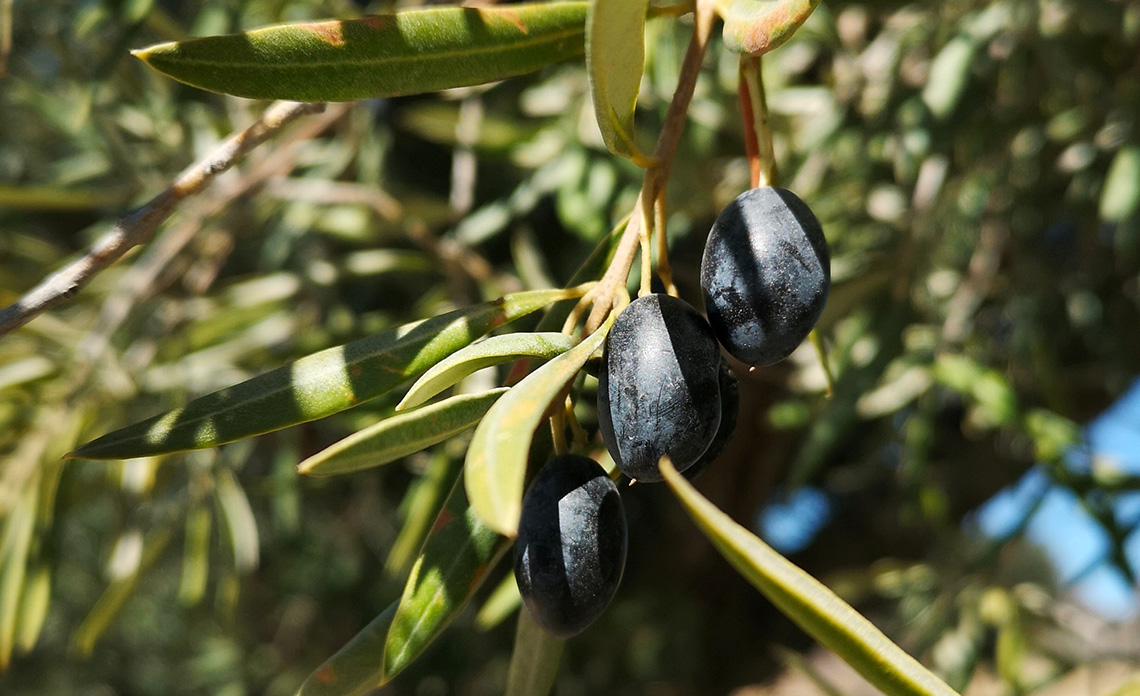The antioxidant properties of extra virgin olive oil
In the process of cellular aging, oxidation is a complex phenomenon. With a rich olive oil diet, cell membranes are less damaged and life expectancy can be higher. The high antioxidant content of extra virgin olive oil has been demonstrated by numerous scientific studies. Zoom on the antioxidant properties of extra virgin olive oil, according to the doctoral thesis in pharmacy, “l’huile d’olive : intérêt alimentaire et cosmétique” by C. Montpellier, 2019) .
Oxidative stress and aging
Extra virgin olive oil helps to reduce oxidative stress. This stress, which occurs inside the human body, is characterized by the alteration or death of cells. Antioxidant substances fight against the formation of molecules (free radicals) involved in the aging process and in some chronic diseases. With a high content of antioxidants, vitamin E and polyphenols, extra virgin olive oil has a positive effect on aging and on the prevention of some diseases. Epidemiological studies have shown that regular consumption of olive oil has an influence on life expectancy.
Antioxidants in extra virgin olive oil
Extra virgin olive oil is pure because it has not been refined. In order to preserve its antioxidant substances, the olive oil must not have been industrially processed. It is therefore preferable to choose extra virgin olive oils from small French producers. These oils are highly traceable, which guarantees the antioxidant content. Consumers should be vigilant when choosing a PDO or AOC extra virgin olive oil and read the label carefully. The PDO or AOC olive oil is subject to precise specifications and checks carried out at the time of production.
Vitamin E, carotenoids, simple phenols (hydroxytyrosol) and complex phenols (oleuropein) are the antioxidant components of extra virgin olive oil. Simple phenols have an anti-inflammatory action because they inhibit platelet aggregation. Complex phenols are powerful vasodilating agents because they activate the formation of nitric oxide which protects blood vessels. They also have an antibacterial action. The high proportion of vitamin E contained in extra virgin olive oil is the main way to combat the formation of free radicals. The other vitamins A, D, K in olive oil combined with vitamin E have a positive action against skin aging. Extra virgin olive oil acts as a natural reducing inhibitor of cellular alteration.
The olive, an antioxidant fruit
The antioxidant richness of extra virgin olive oil simply comes from the olive. The tasting of high quality olives that have not been industrially processed is essential if you want to benefit from its antioxidant qualities. Prefer olives from France produced according to traditional and natural methods! The olive is, then, a fruit that has a real added nutritional value. Cultivated in the open air, the olive must defend itself from oxygen. To do so, it is necessary to synthesize large quantities of antioxidant substances. In fact, all the antioxidant qualities of the olive are found in extra virgin olive oil. But the phenolic content and the vitamin E content of olive oil depend on the production methods and on the cold extraction (extra virgin).
The role of antioxidants in extra virgin olive oil
The regular consumption of extra virgin olive oil and its introduction in the diet (Mediterranean diet) promotes life expectancy by fighting against aging:
Osteoporosis: the introduction of large quantities of olive oil in the diet would have a positive effect on bone mineralization because it promotes the absorption of calcium. ( read the article on osteoporosis )
Memory: the richness in monounsaturated fat or Omega-9 in olive oil can limit cognitive decline and memory loss.
The skin: olive oil can help fight against skin alteration linked to ageing and to the harmful effects of the sun, which accelerate this process through the generation of free radicals. ( read the article on skin )
Source: C. Montpellier, L’huile d’olive, intérêts alimentaires et cosmétique, PhD thesis in pharmacy, 2019. https://dumas.ccsd.cnrs.fr/dumas-02180498/document


